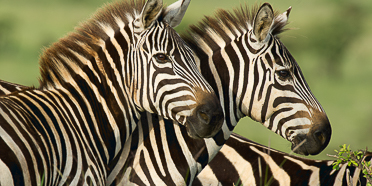- You are here:
- Home
- Countries & Parks
- Kenya Parks
- Borana Conservancy
Overview – Borana Conservancy

Anthony is a renowned Africa expert and author of many Lonely Planet guidebooks, including the guide to Kenya.
Anthony is a renowned Africa expert and author of the Lonely Planet guide to Kenya.
Anthony is the author of the Lonely Planet guide to Kenya.
Borana Conservancy is one of the most important conservation areas in the Laikipia region. Together with its neighbor, Lewa Wildlife Conservancy, Borana is home to thriving populations of black and white rhino. There are no fences between the two conservancies, and they are also good for seeing predators. Borana has strong engagement with the local community, anti-poaching programs and sustainable safari practices.


Pros & Cons
- Great for seeing black and white rhinos
- Excellent wildlife viewing in general
- Off-road driving allows for up-close wildlife encounters
- High-quality accommodations at the main lodge
- Profits from your safari support local communities
- Low visitor numbers mean quiet safari trails
- No budget accommodations
- Often booked out months in advance
Borana Conservancy Safari Reviews
- Expert Rating
- Wildlife
- Scenery
- Bush Vibe
- Birding
- User Rating 0.0/5– 0 Reviews
- Wildlife
- Scenery
- Bush Vibe
- Birding
Wildlife
Every year, more rhinos are born on Borana Conservancy, and the strong anti-poaching presence makes this an important stronghold for both rhino species. You might also see lion, leopard, wild dog, elephant, giraffe, buffalo, zebra, wildebeest and more. Birdlife is also outstanding here, with nearly 300 species recorded. The blue-legged Somali ostrich is one birding highlight among many.
Scenery
Like so much of the Laikipia Plateau, Borana Conservancy is a beautiful landscape of green rolling hills, acacia trees, grasslands, light woodlands and river valleys. The views from many points around the conservancy extend for hundreds of miles, and the verdant green tinge of the landscape offers a superb contrast to the barren hills away to the north.
Activities
Borana offers game drives, but because this is a private conservancy, it’s possible to do night drives and your driver-guide can take you off-road. Horseback-riding safaris are another Borana specialty. Ask also about the possibility of walking safaris, as well as visiting a local community and/or school.
Weather & Climate
The weather and climate of Borana Conservancy is the same as that of the wider Laikipia Plateau. More info:
Best Time To Visit
You can visit Borana year-round. However, the best time for wildlife viewing is during the dry months from July to September, when the weather is fine, roads are in good condition and the grasses are shorter. December to February is also generally dry, falling between the short rains (October and November) and long rains (March to April or May). December to March is the best time for birding.
Getting There
Most travelers fly from Nairobi to Nanyuki and then drive to Borana, or fly on a private charter from Nairobi’s Wilson Airport (WIL), or elsewhere in Kenya, to Borana’s airstrip. AirKenya also has flights to neighboring Lewa Downs from Nairobi-Wilson, Loisaba, Nanyuki, Meru, Samburu and the Masai Mara. To drive from Nairobi to Borana (240km/150mi) takes 4 to 6 hours*.
*Driving times are only a rough indication. You should always consider the possibility of significant delays.
Health & Safety
Please read our malaria and vaccinations page for Kenya and our general ‘Wildlife Viewing Safety Precautions’ for more info:
Want To Visit Borana Conservancy?
Borana Conservancy Safari Reviews
- Expert Rating
- Wildlife
- Scenery
- Bush Vibe
- Birding
- User Rating 0.0/5– 0 Reviews
- Wildlife
- Scenery
- Bush Vibe
- Birding
Most Helpful Expert Review

Anthony is a photographer and writer for travel magazines and Lonely Planet, including the guides to Kenya and Botswana & Namibia.
An Elite Laikipia Reserve
If I were to pick my top Laikipia conservancies, Borana would make the list every time. I love its combination of wildlife, scenery and community engagement – in other words, it gets all of the characteristics that make Laikipia special...


 Kenya Parks
Kenya Parks
